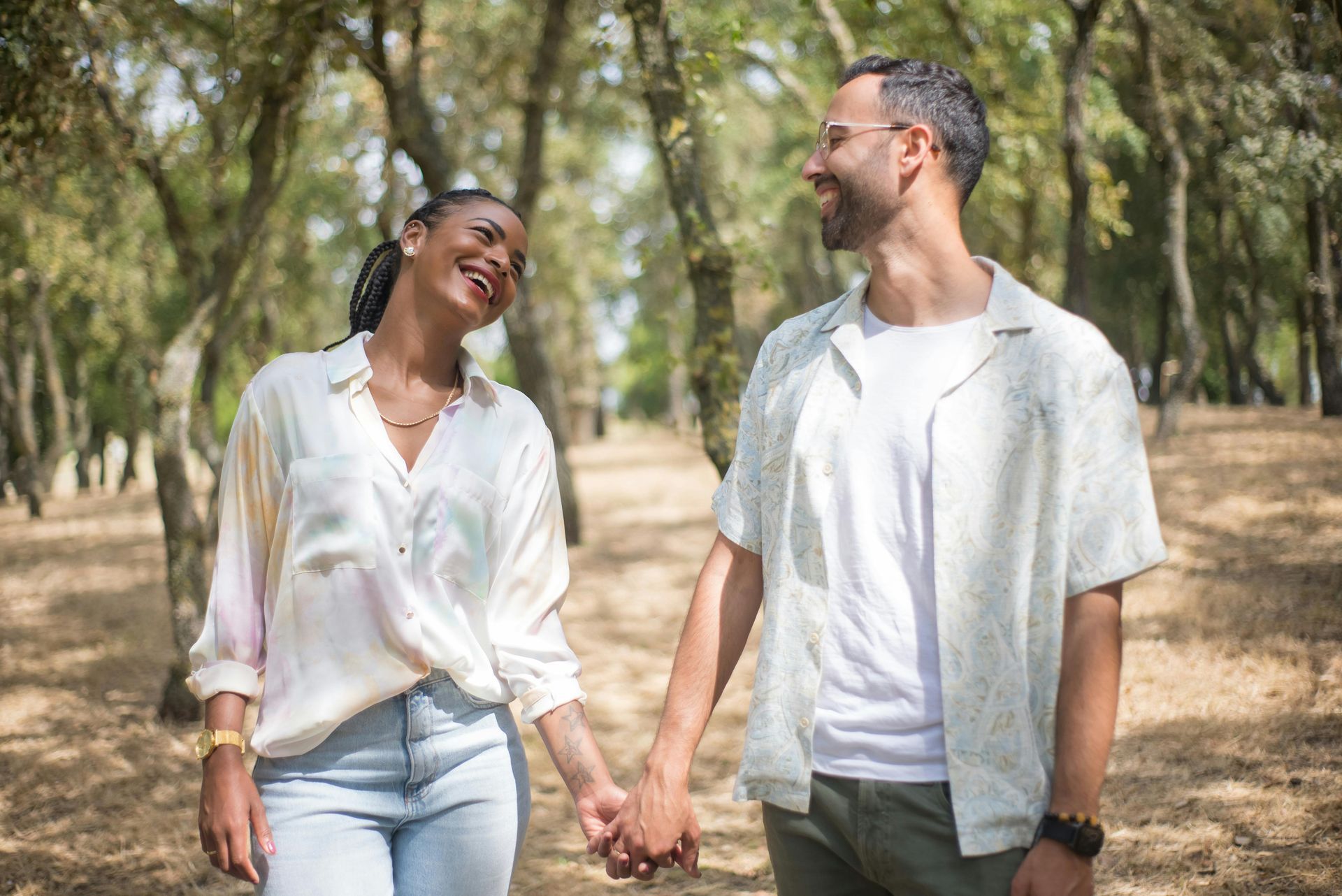10 Characteristics of a Conscious Partnership (Updated 2024)
Conscious relationships are purposeful, decisive, and intentional. They require choice and clarity about how partners want to feel, how they prefer to give and receive love, and their boundaries and non-negotiables.
This definition covers only a portion of this type of relationship. Understanding the true meaning of conscious relationships and how to create one structured around both partners' basic needs in a relationship is essential to deeper connection and lasting security, belonging, and love.
What is a Conscious Relationship?
Conscious relationships require both partners to commit to continual growth — individually by working through their own issues and collectively by working together through any problems that arise.
A conscious couple decides early in the relationship to grow their love into something unique and fulfilling. This enables any challenges they face together to better strengthen their relationship.
The most successful conscious couples embrace the top qualities that foster happy relationships, such as:
- Building a solid foundation of acceptance and taking responsibility
- Adopting a mutual growth mindset
- Practicing effective communication
- Being present
- Appreciating each other’s values
- Respecting independence
Harville Hendrix – taken from Getting the Love you Want

What Are the 10 Characteristics of a Conscious Relationship
You realize that your love relationship has a hidden purpose – the healing of childhood wounds
Instead of focusing entirely on surface needs and desires, you learn to recognize the unresolved childhood issues that under-lie them. When you look at relationships with this x-ray vision, your daily interactions take on more meaning. Puzzling aspects of your relationship begin to make sense to you, and you have a greater sense of control.
You create a more accurate image of your partner
At the very moment of attraction, you began fusing your lover with your primary caretakers. Later you projected your negative traits onto your partner, further obscuring your partner’s essential reality. As you move toward a conscious relationship, you gradually let go of these illusions and begin to see more of your partner’s truth. You see your partner not as your saviour but as another wounded human being, struggling to be healed.
You take responsibility for communicating your needs and desires to your partner
In an unconscious partnership, you cling to the childhood belief that your partner automatically intuits your needs. In a conscious partnership, you accept the fact that in order to understand each other, you have to develop clear channels of communication.
You become more intentional in your interactions.
In an unconscious partnership, you tend to react without thinking. You allow the primitive response of your old brain to control your behaviour. In a conscious partnership, you train yourself to behave in a more constructive manner.
You learn to value your partner’s needs and wishes as highly as you value your own
In an unconscious partnership, you assume that your partner’s role in life is to take care of your needs magically. In a conscious partnership, you let go of this narcissistic view and divert more and more of your energy to meeting your partner’s needs.
You embrace the dark side of your personality
In a conscious partnership, you openly acknowledge that fact that you, like everyone else, have negative traits. As you accept responsibility for this dark side of your nature, you lessen your tendency to project your negative traits onto your mate, which creates a less hostile environment.
You learn new techniques to satisfy your basic needs and desires
During the power struggle, you cajole, harangue, and blame in an attempt to coerce your partner to meet your needs. When you move beyond this stage, you realize that your partner can indeed be a resource for you – once you abandon your self-defeating tactics.
You search within yourself for the strengths and abilities you are lacking
One reason you were attracted to your partner is that he or she had strengths and abilities that you lacked. Therefore, being with your partner gave you an illusory sense of wholeness. In a conscious partnership, you learn that the only way you can truly recapture a sense of oneness is to develop the hidden traits within yourself.
You become more aware of your drive to be loving and whole and united with the universe
As a part of your God-given nature, you have the ability to love unconditionally and to experience unity with the world around you. Social conditioning and imperfect parenting made you lose touch with these qualities. In a conscious partnership, you begin to rediscover your original nature.
You accept the difficulty of creating a lasting love relationship
In an unconscious partnership, you believe that the way to have a good relationship is to pick the right partner. In a conscious partnership you realize you have to BE the right partner. As you gain a more realistic view, you realize that a good relationship requires commitment, discipline, and the courage to grow and change; creating a fulfilling love relationship is hard work.
What are the Top Qualities of a Conscious Relationship?
Build a Strong Foundation of Acceptance and Take Responsibility
Any successful relationship relies on acceptance. Everyone brings unique opinions, values, strengths, weaknesses, and life objectives to a relationship, even those you may not fully understand or agree with. Fully accepting your partner means learning to love yourself and taking personal responsibility.
Relationship therapist Kathleen Maiman explains seven ways to build a strong foundation of acceptance and take responsibility for your actions:
- Adjust your expectations: If your partner does things that frustrate or annoy you, ask yourself if these actions must change or if they’re something you can adjust your expectations for.
- Try positive thinking: Rather than focusing on the negative aspects of your partner, change the narrative and focus on what you love about them instead.
- Embrace gray areas: Just because you do something one way and your partner does it another doesn’t mean their way is wrong. Avoid black-and-white thinking where possible.
- Stop judging yourself: Our inner critic tends to drive the judgment of others. Learning to accept yourself as you are will help you accept your partner as they are.
- Focus on the present moment: This can be tough, but try not to ruminate about the past or associate your partner’s actions with previous experiences.
- Step into their shoes: Anytime you think about changing your partner, consider how you would feel if they felt that way about you. Seeing things from their perspective opens doors for empathy.
- Focus on yourself: Not being able to accept your partner typically stems from your own unmet needs. Consider what you can do for yourself rather than putting all the responsibility on your loved one.
Adopt a Mutual Growth Mindset
Everyone has past wounds, triggers, and unhealthy ways of dealing with conflict. Establishing a growth mindset means learning to do better. All relationships enable hidden hurts to arise — it’s why your partner pushes your buttons so much. A conscious relationship sees this as the point, not the problem.
Your emotional baggage surfaces in conscious relationships so you can learn to heal and grow through it. These relationships help you become a more compassionate, courageous, and loving version of yourself.
To be successful, both partners should agree to continually grow. Stagnation on one or both sides can cause various issues that devastate the relationship. Couples retreats are a great way to learn about and enhance a mutual growth mindset.
Practice Effective Communication
One of the primary reasons couples seek relationship help is to improve communication. Each partner should know how to communicate their needs and emotions effectively so the other can fully understand and accept what they hear.
Avoid communication hurdles by not getting defensive when your partner speaks to you about an issue. Rather than reacting, try to see things from their perspective and always use respect and empathy when addressing each other’s feelings. Relationship therapy can offer tailored advice on how to boost communication in your conscious relationship.
Be Present
The slow decay of friendship and closeness will eventually erode your relationship. It’s inevitable that relationships eventually lose their initial spark over time, but that doesn’t have to mean you grow further apart. Friendship and connection will break down if you check out or become complacent, but presence is preventative medicine.
Being present in the relationship means being actively involved and invested. You prioritize quality time for each other and are alert, engaged, and focused on your partner during that time. Presence requires consistent effort and dedication, especially amongst the many distractions of smartphones.
Appreciate Each Other’s Values
Our brains naturally notice what’s not working way more often than what it is. This means that relationship problems may have more psychological and emotional significance. But when you spend time actively looking for the “good” in your relationship as you do trying to fix the “bad”, you become more appreciative of your partner and the joy you share.
Learning to appreciate each other’s values is a self-reinforcing, upward spiral of praise, validation, and acknowledgement. The more things you have to be grateful for in your relationship, the more you’ll find. Positive reinforcement inspires both parties to become better people and partners.
Respect Independence
Independence in conscious relationships means having the freedom to make your own choices.
Autonomy respects the right to your individual values, opinions, and perspectives, including the right to disagree. Valuing independence enables a conscious partner to overcome the dichotomous challenge that most relationships face — the simultaneous need for closeness and freedom. By respecting independence, you accept your partner’s need for autonomy and continue choosing one another every day.
Create a Conscious Relationship With The Love of Attraction
Couples in conscious relationships don’t make empty promises for ever-lasting love. Instead, they make daily commitments to give their best, take responsibility, embrace growth, practice effective communication, be present, respect independence, and honour and celebrate each other’s differences.
The Love of Attraction specializes in helping you build the relationship you deserve. Even if you feel your relationship has lost its magic and life, there’s still hope.
Learn how relationship counselling can restore your connection and transform your relationship into a peaceful, respectful, and loving place where you can effectively communicate what truly matters.
Get in touch
Register for our Newsletter and receive a Free Love Chat Package
- The 5 Steps to a Better Relationship
- Ongoing Monthly Relationship Tips
- If you want more love in your life, our relationship Love Chat Package is an easy cost-free first step.


















